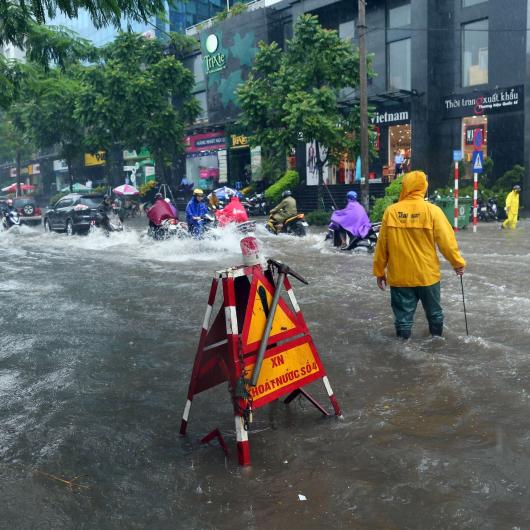Vietnam: Managing urban floods and sewage for health

When cities flood, the people who live can be at risk of health problems. If drainage systems and other urban infrastructure can’t cope with the challenges posed by urbanization and climate change, residents can be exposed to health risks caused by harmful bacteria, viruses and chemicals.
That’s why flood risk assessments need to take health risks into account – but in Vietnam, which has several flood-prone large cities, including Ho Chi Minh City and Hanoi, the capital, such risks are rarely considered, as there is no suitable methodology and insufficient data.
Changing this would benefit urban residents across the country, IHE Delft Professor of Flood Resilience of Urban Systems Chris Zevenbergen said at a seminar held this month at the Embassy of The Netherlands in Hanoi, adding that “appropriate methods that look at both the exposure and vulnerability of citizens are now becoming available to assess these health risks.”
IHE Delft PhD Candidate Ha Do presented research she has conducted together with Kyaw Zin Htoon, a medical doctor pursuing an MSc in Water and Sustainable Development at IHE Delft. They are researching the distribution of pathogens in floodwater in a neighbourhood of Hanoi to identify flood measures that could help improve the livelihoods and welfare of people who live in the area.
Seminar speakers included The Netherlands’ Ambassador to Vietnam, Cees van Baar, and officials from Vietnam’s Ministry of Health and Ministry of Construction, the Hanoi Sewage and Drainage system company, the Hanoi Medical College as well as Hanoi Architectural University.
